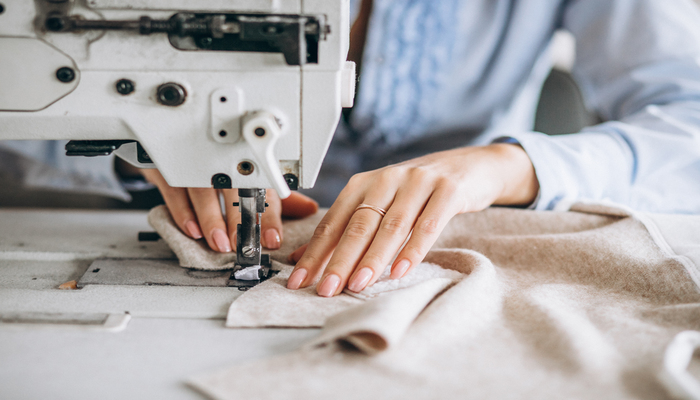Sewing and altering clothes is more than just a craft—it’s a skill that can open doors to countless opportunities. Whether you’re passionate about fashion or simply love working with fabric, there’s a growing demand for quality tailoring and alterations in every community.
With the right skills, you can turn your love for sewing and altering clothes into a profitable business. The best part? You don’t need a massive investment to get started. All you need is a sewing machine, some creativity, and a willingness to learn.
If you’ve ever thought about turning your sewing skills into an income, you’re in the right place. Keep reading to discover how you can turn your passion into a thriving business that meets the needs of customers while offering flexibility and creative freedom.
The Growing Demand for Sewing and Altering Clothes
In a country as diverse as South Africa, the demand for tailored clothing is high. People seek clothes that fit perfectly and reflect their unique style. As fashion trends evolve, so do the needs of consumers, and sewing and altering clothes provides an avenue for addressing these specific requirements.
Whether it’s adjusting a pair of trousers to fit better or creating custom pieces for special occasions, this skill is essential.
In many cases, the price of buying new clothes can be high, especially with the increasing costs of living. This creates an opportunity for those who have the ability to sew and alter clothes at affordable rates. People are more inclined to repair or tailor their existing clothing rather than purchase new garments, which creates a steady stream of demand for alterations.
Turning Your Passion Into a Business
If you have a passion for sewing and altering clothes, the first step to turning it into an income stream is gaining the necessary skills and experience. Many individuals begin by sewing as a hobby or by learning basic skills from family members. But in today’s digital age, there are a plethora of online resources, courses, and tutorials to help you hone your craft.
Once you have the necessary skills, you can start small. Begin by offering your services to friends, family, or neighbors. Word of mouth is a powerful marketing tool in South Africa, and your first clients could help build your reputation and grow your business.
Setting Up Your Sewing Business
Starting a sewing business can be relatively low-cost, making it an attractive option for entrepreneurs in South Africa. Here are some key steps to help you set up a successful sewing and altering clothes business:
-
Create a Business Plan: This doesn’t need to be complicated, but it’s essential to have a clear understanding of your target market, pricing, and the services you’ll offer. Are you focusing on general alterations, custom-made clothing, or both?
-
Invest in Equipment: Depending on the services you want to provide, you’ll need a good-quality sewing machine, fabric, thread, and other basic tools. As your business grows, you might want to invest in more specialized equipment to handle different types of fabrics or larger orders.
-
Find Your Niche: The world of sewing and altering clothes is broad. Specializing in a particular area can help you stand out from the competition. Consider focusing on wedding dresses, school uniforms, or even corporate tailoring. Identifying a niche market will help you cater to a specific customer base.
-
Promote Your Services: In South Africa, community-based marketing can be incredibly effective. Use social media platforms like Instagram and Facebook to showcase your work. Posting before-and-after photos of alterations or showcasing your custom designs will help attract attention. Additionally, joining local business directories or online marketplaces can also help you connect with potential customers.
-
Pricing and Payment Options: Pricing your services competitively is crucial. Look at what other tailors in your area are charging for similar services. Keep in mind that sewing and altering clothes is a highly customizable service, so you can set prices based on the complexity and materials involved. Offering flexible payment options such as cash, EFT, or mobile payment solutions like SnapScan can make it easier for customers to pay.
Expanding Your Skills and Knowledge
In the competitive world of sewing and altering clothes, continuing to expand your skillset will give you an edge. Stay updated with fashion trends, sewing techniques, and new tools that can help improve the quality and efficiency of your work. Attending workshops, networking with other professionals, and watching online tutorials are great ways to enhance your knowledge.
Additionally, consider investing in courses that can teach you specific skills like pattern-making or garment construction. These skills can add value to your services and make your business more versatile.
Benefits of Sewing and Altering Clothes as a Business
Running a sewing and altering clothes business in South Africa offers several advantages:
-
Low Overhead Costs: Unlike many businesses, the initial setup costs for a sewing business can be relatively low. You don’t need a large space to get started. A small studio or even working from home can work well for most sewing businesses.
-
Flexibility: One of the best things about running a sewing business is the flexibility. You can choose when and how much you want to work. If you’re looking for a side hustle or a full-time job, the choice is yours.
-
Creativity: If you love fashion and design, a sewing business allows you to express your creativity. Whether you’re designing one-of-a-kind pieces or making alterations to existing clothing, there’s plenty of room to experiment with styles and designs.
-
Sustainability: In today’s world, sustainability is an essential topic. By offering services like altering clothes and repairing garments, you’re helping customers reduce waste and get more use out of their existing items. This is something that resonates well with eco-conscious consumers.
-
Job Creation: As your business grows, there’s the potential to hire others and contribute to the local economy. South Africa’s unemployment rate is high, so offering job opportunities within your business can have a meaningful impact on the community.
Challenges to Keep in Mind
While starting a sewing and altering clothes business in South Africa can be rewarding, it’s not without its challenges. One of the main obstacles could be dealing with fluctuating customer demand. There might be slow seasons where fewer people need alterations, so it’s important to plan and diversify your services.
Another challenge could be competition. There may be other seamstresses and tailors in your area, so finding ways to differentiate yourself through customer service, quality of work, and unique offerings will be crucial for standing out in the market.
Conclusion
The art of sewing and altering clothes offers an incredible opportunity for individuals in South Africa to transform their skills into a profitable business. By starting small, promoting your services, and continuing to improve your skills, you can build a successful venture that caters to the growing demand for custom and tailored clothing.
With a little creativity, dedication, and a passion for the craft, sewing and altering clothes can become a rewarding source of income, while also allowing you to contribute to sustainability and the local community.





